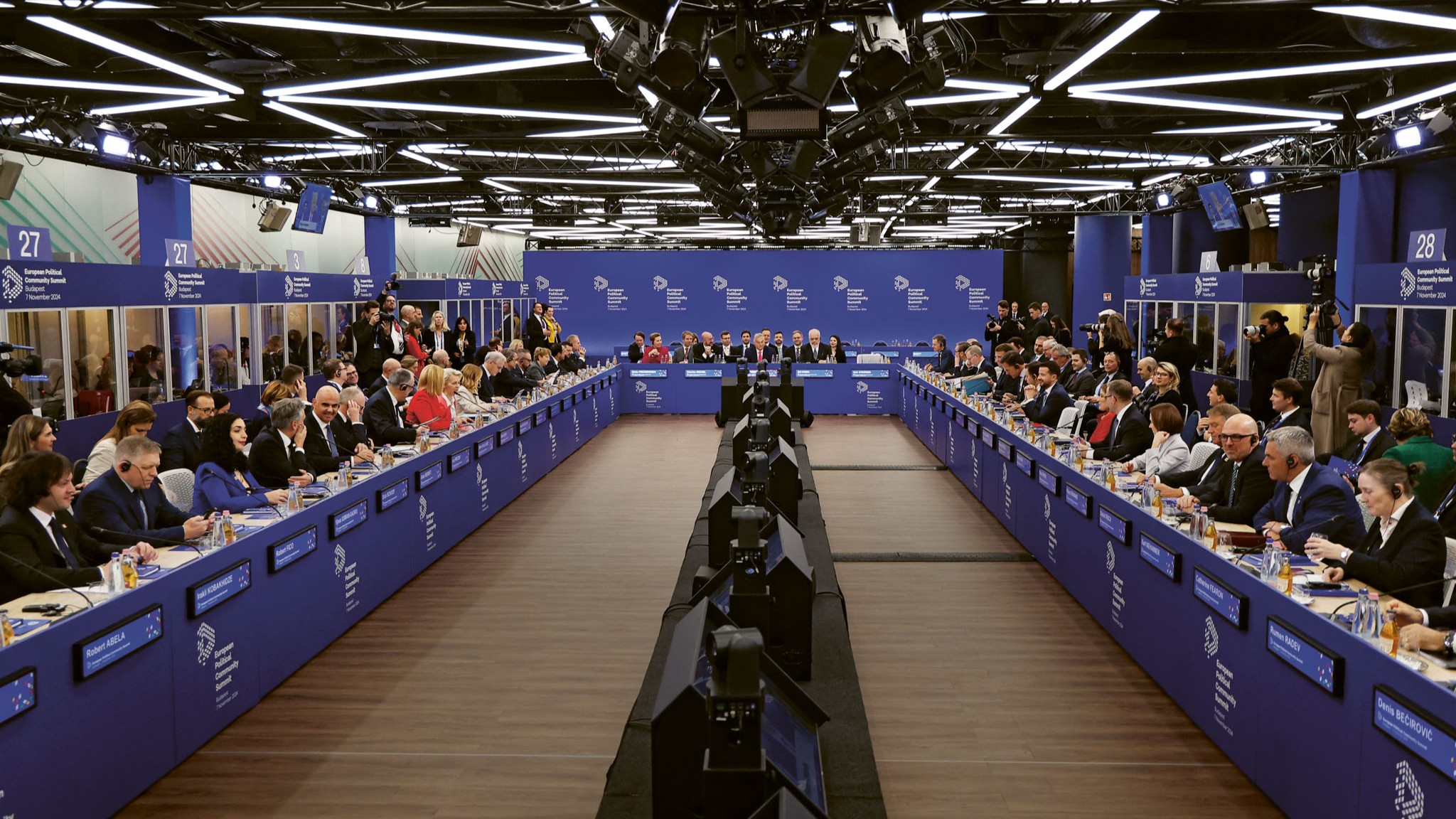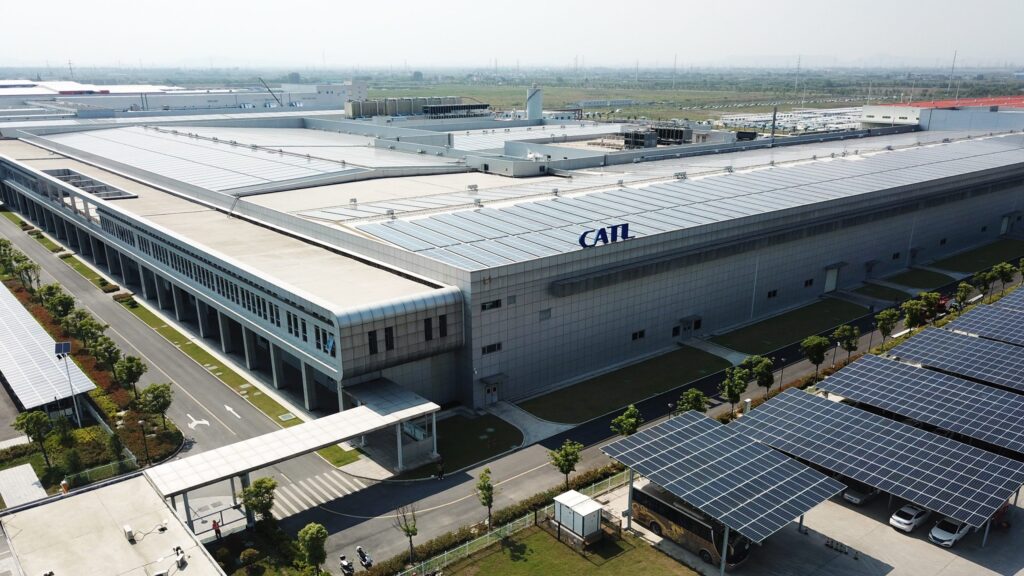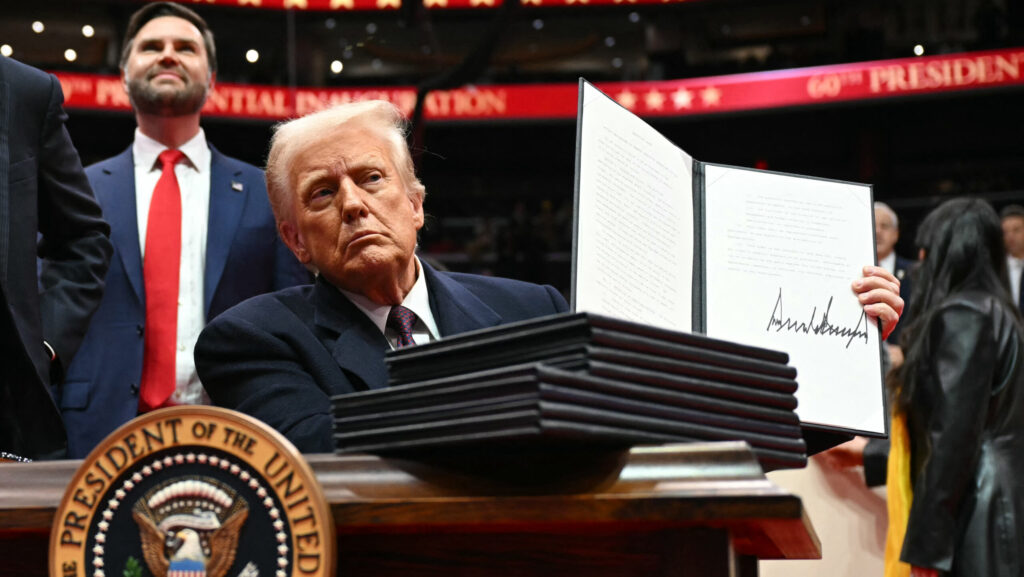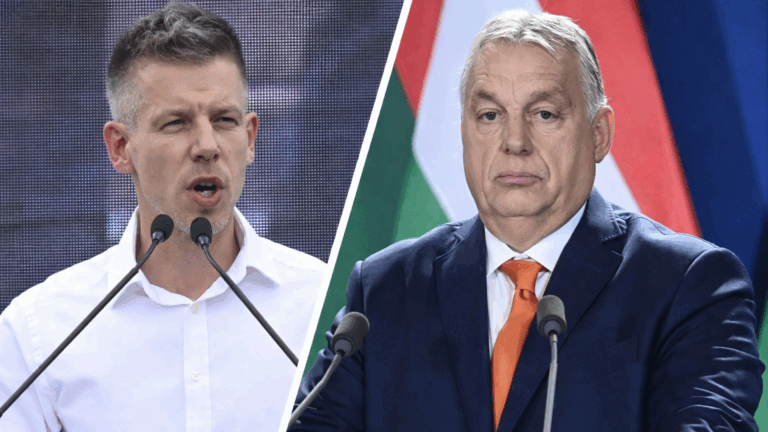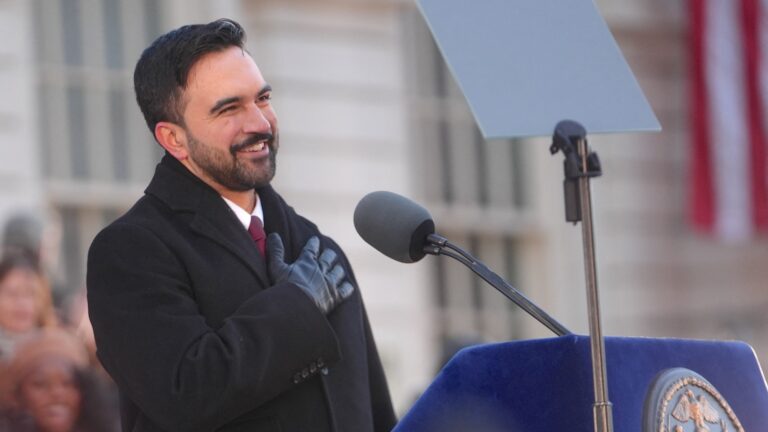This article was originally published in Vol. 5 No. 1 of our print edition.
In the words of Hungarian Minister for European Union Affairs János Bóka, ‘our EU presidency was characteristic, active, and strategic’.1 It was characteristic in that we did not for a moment deny our pride in saying that this was a Hungarian presidency, and we wanted to show what we think about the EU, about European integration, about the institutions, and about the challenges affecting Europe, and did not deny that we offer concrete answers to these challenges. It was active because we had very serious projects, initiatives, and proposals, which we constantly put on the table, even if they provoked debates. It was strategic because we have taken advantage of the institutional transition to think strategically and set the direction which the European institutions must take over the next five years. The Hungarian presidency has achieved all these objectives.
Hungary took over the presidency of the Council of the European Union in the midst of multiple crises and unprecedented challenges, and at the time of the institutional transition. We are facing challenges concerning our security—primarily in our neighbourhood—that we have not seen since the Second World War. These are, primarily, the war in Ukraine and the serious conflicts in the Middle East and Africa. In the EU, illegal migration and security challenges are causing massive disturbances in the Schengen area, while Europe is losing its global competitiveness. Hence our ambitious motto: ‘Make Europe Great Again’—which can also be understood as ‘Make Europe Competitive Again’.
What we saw this past year at the European Parliament (EP) elections is that European citizens voted for change. Brussels, however, did not understand the need for a change and thus consecrated much more energy to maintaining the status quo, engaging in power plays and pacts with mainstream forces, often behind the scenes, rather than acting in the real interests of the continent and European citizens. In addition, the Hungarian presidency faced unique challenges due to the institutional transition. Instead of facilitating a smooth transition, the EP exploited the situation for political gain, systematically excluding the newly formed right-wing Patriots for Europe group from all positions they were entitled to under customary law, the D’Hondt method, and the EP’s own Rules of Procedure, while frequently invoking principles of rule of law and democracy. Despite the fact that the EP likes to present itself as the guardian angel of democracy in the EU, its actions have perfectly demonstrated the EP’s double standards on democracy and fair representation. This is also why, during the presentation of the Hungarian presidency’s programme, the president-elect of the Commission overstepped her role and the framework defined by the Treaties and attacked the Hungarian prime minister.2 Meanwhile, the European People’s Party group leader presumed he had the authority to dictate who should be Hungary’s next prime minister.3
Such unprecedented breaches of competence and sincere cooperation illustrate how certain political forces within the EU seek to undermine member states daring to challenge the Brussels mainstream. Rather than ensuring a professional and cooperative transition, key EU figures engaged in open political interference, disregarding the principle of sovereign equality among member states. Moreover, the EP refused to adopt some legislation and deliberately slowed down the negotiation process, simply because they were overseen by the Hungarian presidency. A quick calculation shows that it would have been possible to proceed with almost twice as many files if the EP had been willing to perform its primary task: adopting EU law, in cooperation with the Council of the European Union.
‘The Hungarian presidency has shown resilience and professionalism, ensuring that progress has been achieved on multiple fronts’
This shows clear disregard for both institutional courtesy and the obligation of inter-institutional cooperation enshrined in the Treaties. This politically motivated gridlock severely hampered the EU’s ability to deliver tangible results during this crucial period. To put it mildly, throughout the presidency, the EP demonstrated an unprecedented level of political obstruction, prioritizing ideological battles over institutional cooperation. Instead of engaging constructively in legislative processes, certain factions within the Parliament deliberately stalled negotiations on key policy files, ignoring the fundamental duty of co-legislation with the Council.
The EP’s resistance to cooperating with the Hungarian presidency went beyond procedural delays. Such was the case, for instance, when our ministers sought to present the Hungarian presidency programme in the relevant committees in the EP, and several committees tried—unfortunately, in most cases successfully—to prevent our ministers from being heard for political and other fabricated reasons, in violation of the spirit of institutional dialogue.4 These actions exposed the Parliament’s preference for political posturing over constructive governance. Despite the Treaties explicitly requiring ‘sincere cooperation’ between EU institutions, the EP, under the influence of mainstream political forces, engaged in open defiance of the rotating presidency. The deliberate politicization of legislative work not only hindered Hungary’s ability to advance key EU priorities but also set a dangerous precedent for future presidencies. Meanwhile, the Hungarian presidency acted as an honest broker, in the spirit of loyal cooperation, conducting constructive dialogue with the other institutions, something that cannot be said of the other actors involved. The task of the Hungarian presidency was therefore extremely difficult under such circumstances.
This was a huge challenge and a significant responsibility for the entire Hungarian government, public administration, and diplomatic service, as well as the public sector as a whole. Fortunately, the skills and resources required did not have to be learned from scratch, as we had held the presidency of the Council of the European Union thirteen years ago—with the personal participation of the prime minister of Hungary and several members of the government. We retained valuable experience from our very successful 2011 presidency. This fond institutional memory, coupled with the government’s unwavering resolve to navigate a far more politically charged environment, allowed Hungary to overcome deliberate obstacles imposed by certain actors within the so-called ‘Brussels Bubble’.
I recall that we did not have an easy task in 2011 either, at least regarding the preparation of the Media Law and the Fundamental Law, but at least back then, Brussels still recognized professional work. In 2024, however, our presidency faced a huge bureaucratic headwinds. Today, the EU is in a much worse state both internally and externally. No one denies that we faced crises in 2011 (like Fukushima, or the Arab Spring) but not on the scale we are facing now. Despite these challenges, the Hungarian presidency has shown resilience and professionalism, ensuring that progress has been achieved on multiple fronts. We have also trained 1,000 people for presidency tasks in Budapest and Brussels, with special regard to the institutional cycle change, internal procedures, and chairing tasks. Against all odds, the presidency performed excellently. As Minister Bóka said, ‘the 2011 presidency was successful, the 2024 one was historic’.5 However, despite its many achievements, even at the highest level, it only received recognition behind closed doors.
The Budapest Declaration on Competitiveness, which was unanimously adopted by the leaders of the member states, is a commitment with specific deadlines to revive the European economy.6 Today, what Hungary has been consistently saying for years has become widely accepted: namely, that demography is also a matter of competitiveness, and that the borders of the EU must be protected. Furthermore, a text was adopted by consensus on the Common Agricultural Policy, even though it was under constant attack, and the member states also stood up for the preservation of the cohesion policy. The Western Balkan countries also finally felt that some progress was made on their path to becoming members of the Union. It is likewise a historic achievement that Romania and Bulgaria joined the Schengen area and as such finally enjoy all four freedoms, including the free movement of capital, goods, services, and persons. This is a legacy we have carried over from our 2011 presidency. All this could only be achieved thanks to the efforts, commitment, and preparedness of our administration in Budapest and in Brussels, as well as the diplomacy and patience for all the haggling.
Overall, the efforts of the Hungarian presidency, along with Prime Minister Viktor Orbán’s personal and political courage in the cause of peace, remain outstanding. At the beginning of the presidency, Prime Minister Orbán launched a large-scale peace mission, and the Hungarian government closed the six-month EU presidency with a peace mission. In December, the Holy Father received the Hungarian prime minister in the Vatican. Discussions were held with President-Elect Donald Trump and President Erdoğan. While some European leaders remained content with empty and politically meaningless rhetoric, Hungary took concrete steps to facilitate dialogue among global actors. Prime Minister Orbán’s diplomatic initiatives demonstrated Hungary’s solid commitment to advocating for peace. It is beyond belief that these efforts were met with scepticism in Brussels, where ideological rigidity often prevents pragmatic diplomacy from taking centre stage. We have believed in peace since the beginning of the war, and that peace is now within touching distance. As the prime minister said, ‘peace is achieved at the negotiating table, not on the battlefield’.7 Idézet Accordingly, we must seize the historic opportunity to end the bloodshed now and bring the parties concerned to the negotiating table.
During the Hungarian presidency, we made progress in all of the seven previously defined priorities (competitiveness, enlargement, defence policy, illegal migration, agriculture, cohesion, and demography). In four areas in particular, significant progress was achieved. Concerning these areas, the Hungarian presidency set standards that would determine the direction of the Union in the coming months and years: focusing on competitiveness; a consistent and merit-based enlargement policy; the enlargement of the Schengen area to include Romania and Bulgaria; and the recognition of demography as a fundamental pillar of competitiveness. Allow me to expand on these briefly.
Mega Means Meca?
Strengthening the competitiveness of the EU was a key overarching priority of the presidency. At the informal meeting of the European Council, the Budapest Declaration was adopted. This defines for the years ahead the steps to be taken to improve the competitiveness of the EU. The document aims to set the direction in which the Union will respond to new geopolitical challenges, while further strengthening the sustainability and innovation capacity of the European economy. The Budapest Declaration clearly identifies and elevates the most important tasks of the European institutions to strategic heights.
The Budapest Declaration on a New European Competitiveness Deal, a key achievement of the presidency adopted by the leaders, highlights the urgent necessity of a commitment to make Europe more competitive and to restore economic growth. This declaration reflected not only Hungary’s leadership in reviving Europe’s economy but also its foresight in recognizing that economic competitiveness goes hand-in-hand with geopolitical stability. By advocating for the reduction of regulatory burdens and supporting small and medium-sized enterprises (SMEs), Hungary has demonstrated a forward-thinking approach to creating sustainable economic growth that will endure amid global uncertainties.
To regain and enhance the competitiveness of Europe, it must create conditions for sustainable development via the deepening of the internal market, focusing on supporting SMEs, and an industrial policy in partnership with European economic stakeholders and citizens. In particular, the Budapest Declaration calls for a reduction in regulatory and administrative burdens for companies and immediate steps to provide affordable energy for European businesses. In addition, the Budapest Declaration calls for an increase in R&D investment to meet the 3-per-cent GDP target by 2030. The Declaration sets clear tasks and deadlines for the institutions, with the European Council overseeing progress.
The presidency also launched a comprehensive review on how different EU policies could enhance European competitiveness. In this context, the presidency conducted more than 50 discussions in all Council configurations about 17 main policy areas.8
Consistent and Merit-Based Enlargement
We have defined a consistent and merit-based enlargement policy as one of the key priorities of the Hungarian EU presidency.9 This is one of the most successful policies of the European Union, and in order to preserve it, it is essential to ensure that it remains merit-based, balanced, and credible. The latest country to join our community was Croatia in 2013—thanks to the outstanding efforts of the 2011 Hungarian presidency. The last eleven years are the second longest period without enlargement in the history of the Union.
‘Hungary demonstrated that an alternative vision for Europe is not only possible but urgent and necessary’
The Hungarian presidency wanted to achieve significant progress in the accession process of the Western Balkan countries. Our priority was to enable all the countries of the region to take at least one step forward. We managed to organize three intergovernmental conferences (IGCs) with tangible results in the form of opening clusters or closing chapters. We organized the second and third intergovernmental conferences with Albania and managed to enter the phase of effective negotiations by opening two clusters. We organized the 17th intergovernmental meeting of the Accession Conference with Montenegro, where three chapters were provisionally closed. We managed to take a significant step in the direction of opening a cluster with Serbia. Organizing the next intergovernmental conference with Serbia is now within reach at the beginning of 2025.
A ministerial conference on training, research, and innovation was organized in Skopje, North Macedonia. This was followed by the EU–Western Balkans ministerial meeting on justice and home affairs in Budva, Montenegro. At the European Political Community Summit in Budapest, leaders from the Western Balkans had an unprecedented opportunity to engage in the discussions. The period of the presidency was also crucial with regard to the implementation of the Growth Plan. During our presidency, five Reform Agendas were adopted. Based on the Reform Agendas, after the national legislative processes are concluded, the first transfers from the facility will arrive to the beneficiaries soon.
Extension of the Schengen Area
One historic and probably most tangible achievement was the agreement reached in Budapest on 22 November with Austria, thanks to which on 12 December 2024 the Council adopted the decision on lifting checks on persons at the internal land borders with Bulgaria and Romania as of 1 January 2025.10 The decision marks a historic moment for the Schengen area. In addition, this success—achieved through determined diplomacy and strategic negotiations—highlights Hungary’s ability to deliver concrete results for European citizens.
Based on the decision, land border controls between the two countries were abolished as of 1 January 2025, thereby extending one of the EU’s greatest achievements—the possibility of free movement—to the residents of the two countries, including the Hungarians of Transylvania. This has political and symbolic meaning for Hungary.
Demography
The Hungarian presidency defined demographic issues in Europe as a horizontal priority. In the autumn, we examined the issue from a consensual perspective, covering many aspects related to competitiveness, sustainability, the labour market, housing, and the youth. In November 2024, an informal meeting of demographics ministers also took place—the first time ever that this type of Council meeting was organized by an EU presidency.11 This landmark event demonstrated Hungary’s commitment to framing demographic policy as a comprehensive, cross-cutting issue, recognizing its wide-reaching impact on the labour market, sustainability, and long-term economic growth. By prioritizing demographic issues, Hungary has paved the way for future EU discussions that will focus on additional concrete steps required to secure Europe’s prosperity. In the following, we will list a few other important presidency achievements, without being exhaustive.12
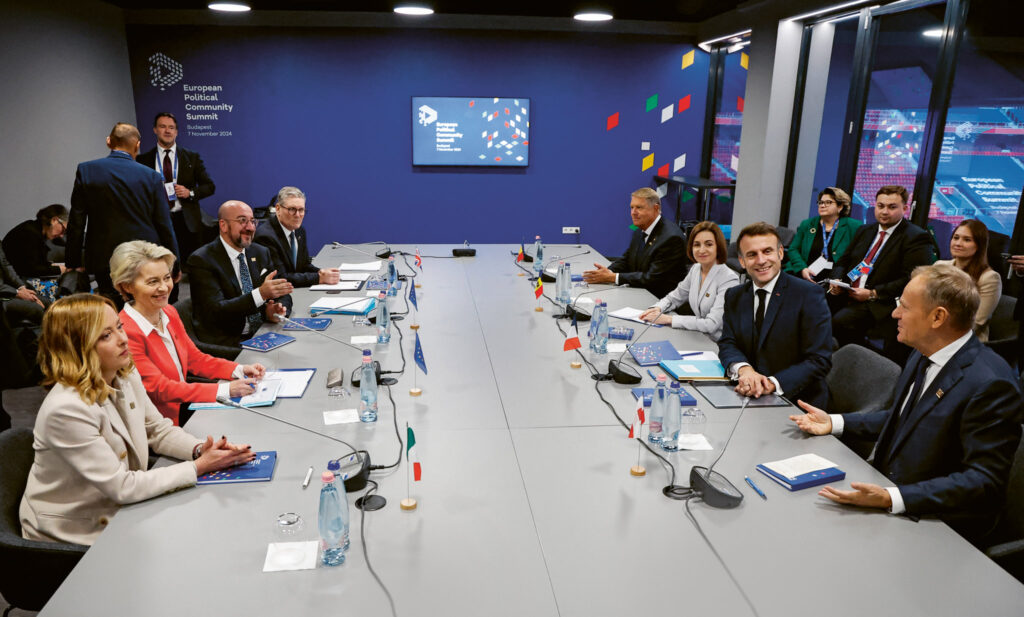
Hungary, 7 November 2024 PHOTO: AFP NEWS
After ten years, the Council managed to approve new strategic guidelines for legislative and operational planning within the domain of freedom, security, and justice. The guidelines will provide a new impetus to our work during a major policy shift in Europe that is increasingly moving towards innovative solutions to address illegal migration and to the external dimension of migration.
In line with the presidency’s horizontal priority of a farmer-focused future for agriculture, the Council adopted conclusions on the post-2027 Common Agricultural Policy (CAP), towards a competitive, crisis-proof, sustainable, farmer-friendly, and knowledge-based future for EU agriculture. It is the first time that 27 EU agriculture ministers managed to agree unanimously on a vision for the future of CAP. The conclusions will serve as a basis for strategic dialogue on the future of agriculture, initiated by the Commission.
Another topic that may seem like a minor technical issue but should not be underestimated is the adoption of fishing quotas. Following a heated debate, the Hungarian presidency successfully facilitated this agreement, recognizing its critical importance for the livelihood of fishermen, their economic security, and the sustainability of entire regions.
Let us also remember the presidency’s outstanding efforts on fostering Jewish life and combating anti-Semitism. The Council approved a declaration highlighting alarmingly high levels of anti-Semitism across the EU, emphasizing that the Union must stand unequivocally against all forms of anti-Semitism, racism, hatred, and discrimination. The declaration also stresses the need to foster Jewish life through culture, education, and Holocaust remembrance. The EU must continue to ensure the safety of Jewish people and the security of Jewish premises and institutions, as well as supporting and protecting the victims of all forms of anti-Semitism, racism, and all other forms of hatred.
It is a strange but unavoidable fact that in addition to holding our presidency in the second half of the year (whereby instead of six months we had approximately four months to fulfil our tasks) we had to do so during an institutional transition. Consequently, we were compelled to ensure the smoothness and legality of the institutional transition and the continuity of the work carried out in the Council. We had to deal with an outgoing Commission, and as of 1 December an incoming Commission, a new European Parliament that had to reconstitute itself, and mandates to be reconfirmed to be able to start negotiations with us, coupled with the aforementioned political reluctance and lack of will to start negotiations. Despite all this, examining the matters that an institutional cycle-changing presidency has to handle in the second half of the year, the institutional transition was successful: the new Commission took office on 1 December. Hungary played a very important management role in this. We can also note the adoption of the budget for next year, which was particularly difficult because we were working in a transitional, institutional period, and there were new budgetary challenges that we had not faced before. We ensured the continuity of the legislation: we held trilogies in 17 files, reached general approaches in 19 legislative files, and adopted 57 Council conclusions and one declaration.13
To sum up, Hungary took over the presidency of the Council of the European Union at a time of extraordinary challenges. Our continent is facing shared crises, including the war in our neighbourhood, the EU increasingly lagging behind its global competitors, and fragile security, while being endangered by persistent waves of illegal migration, the evident vulnerability of international supply chains, natural disasters, the effects of climate change, and the looming impact of demographic decline. In the last decade (and especially in the last five years) all the EU’s strategic responses have failed to effectively address these challenges. The Hungarian presidency was therefore committed to addressing these challenges from a different angle, placing European citizens’ safety and wellbeing first. This approach, however, often clashed with the entrenched political interests deeply embedded within EU institutions, where maintaining the status quo took precedence over real solutions. By challenging prevailing narratives on security, migration, and economic competitiveness, Hungary demonstrated that an alternative vision for Europe is not only possible but urgent and necessary. We put proposals and projects on the table, which did not always fit in with the mainstream because the mainstream solutions proved ineffective—hence, we felt it was our political responsibility to do so. We did not choose the easy path, but the honest one—putting the interests of European citizens at the very heart of our institutional work. We worked to find common answers to Europe’s common challenges. As Minister Bóka noted, the EP elections reaffirmed the need for change, and the presidency had a moral responsibility to reflect upon these, hence, the presidency kept the need for a change alive. Hopefully, the upcoming presidencies will reflect and build upon the achievements and lessons of the Hungarian presidency, continuing to prioritize a citizen-centred approach in addressing Europe’s growing challenges.
Flawless Organization and High-Level Political Effort
The Summit of European Political Community (EPC) held on 7 November and the informal meeting of the European Council on 8 November
The fifth EPC Summit allowed Hungary to host its largest ever diplomatic event, with the leaders of 42 member states, three EU institutions, and three international organizations from the entire continent participating in the meeting. So much for isolation.
Unlike previous summits, leaders of several member states spoke at the Budapest Summit. In the opening plenary session, leaders of three EU member states (Hungary, France, and Denmark) and three non-EU countries (Ukraine, Serbia, and Türkiye) spoke. The second plenary session offered an opportunity for the President of the European Council to speak, and extended the same opportunity to non-EU states (Albania, Bosnia and Herzegovina, Georgia, and Kosovo), something which was specifically requested by the non-EU partners during the preparation. This diverse representation highlighted Hungary’s diplomatic powers in bridging the East–West and EU–non-EU divides, encouraging inclusive discussions on Europe’s future. The summit offered a comprehensive opportunity for bilateral and multilateral leaders’ consultations, which the presidency facilitated both by organizing the agenda and by choosing the venue. Among these, the meeting of the Greek–Turkish–Cypriot leaders is worth highlighting. The parallel section sessions focused on economic security, including connectivity, and the previously initiated migration session. Leaders were divided into four groups in order to facilitate substantive debate.
‘We did not choose the easy path, but the honest one—putting the interests of European citizens at the very heart of our institutional work’
The adoption of the Budapest Declaration at the European Council (see above) and the summit were defining events of our EU presidency. Such events have not yet been held in Hungary. As Prime Minister Orbán said,14 the EPC Summit was the biggest diplomatic event of Hungary’s modern history. We conducted the events flawlessly and achieved our political goals. We have taken the first step towards the institutionalization of the European Political Community. This achievement marks Hungary’s emergence as a key facilitator in European diplomacy, where its leadership is recognized by both allies and adversaries. In addition, the Budapest Declaration defines the competitiveness priorities of the EU for many years. Our guests left satisfied, and even our political opponents expressed their appreciation.
The Numbers
When we talk about achievements and the results of the presidency, it is important to mention some concrete numbers by which one can tangibly sense the magnitude of the work performed and the so-called ‘machinery’ of the presidency. Behind each number lies significant planning, coordination, and negotiation, underscoring the capacity of Hungary’s public administration and diplomatic corps to operate at the highest levels.
As mentioned previously, Hungary hosted two major summits in Budapest—the European Political Community Summit and an informal European Council in November. These gatherings, attended by key political figures including 42 heads of government, as well as representatives of three EU institutions and multiple international organizations, solidified Hungary’s position as a pivotal player in European and global diplomacy.
Beyond the major summits, the presidency also facilitated an impressive number of formal and informal meetings, including 39 Council meetings in Brussels and Luxembourg and 14 informal meetings in Budapest. These were crucial for advancing the EU’s legislative agenda. We chaired 52 Coreper (ambassadors) meetings and 1,204 working group meetings. 134 events were organized in Brussels, and around 240 events were organized in Hungary during the presidency. In total, these more than 300 events were meticulously organized, underscoring the breadth and depth of Hungary’s engagement with EU institutions and stakeholders. These events, ranging from high-level political meetings to technical workshops, were essential in ensuring the smooth operation of the presidency and fostering meaningful dialogue on key European issues.
The legislative process during the Hungarian presidency was marked by intense and productive trilogues on 17 files. Although challenges arose in the process, Hungary successfully secured political agreements on nine of these files, a significant achievement given the complex and sometimes contentious negotiations within the EU institutions. Unfortunately, there were 18 files where there was no willingness from the side of the EP to move forward. We reached a general or partially general consensus on 19 legislative files. We adopted 57 Council conclusions and one Council declaration. A thousand people were trained in the preparation phase of the presidency, and several hundred consultations were conducted with stakeholders.
These numbers represent more than just achievements—they tell the story of a presidency determined to meet the expectations of Europe’s people and shape a better tomorrow for the continent, or as our motto puts it: Make Europe Great Again. As Minister Bóka expressed: ‘The Hungarian EU presidency was successful. Every day when we wake up, we should remind ourselves of this, and when go back to sleep. Let the day start like this in the morning and end like this in the evening, so that we can get used to the fact that in a fundamentally unfriendly environment for us, faced with extremely strong headwinds, Hungarian politics, Hungarian public administration, and Hungarian diplomacy were able to put a result on the table that serves the interests of all of Europe.’15
NOTES
1 ‘EU-elnökség – Bóka János: a magyar uniós elnökség karakteres, aktív és stratégiai volt’ (EU Presidency – János Bóka: Hungarian EU Presidency Has Been Characterful, Active, and Strategic), MTI (30 December 2024), https://mti.hu/hirek/2024/12/30/eu-elnokseg-boka-janos-magyar-unios-elnokseg-karakteres- aktiv-es-strategiai-volt-0.
2 ‘Verbatim Report of Proceedings, 9 October 2024’, European Parliament, www.europarl.europa.eu/doceo/document/CRE-10-2024-10-09-ITM-002_EN.html.
3 ‘Verbatim Report of Proceedings, 9 October 2024’.
4 Balázs Márton, ‘Újabb EP-szakbizottságban van veszélyben a magyar uniós elnökség meghallgatása’ (Another EP Committee Puts the Hungarian EU Presidency Hearing in Jeopardy), Telex (21 November 2024), https://telex.hu/ kulfold/2024/11/21/eu-europai-parlament-soros- elnokseg-boka-libe-meghallgatas.
5 ‘EU-elnökség – Bóka János: a magyar uniós elnökség karakteres, aktív és stratégiai volt’.
6 ‘Budapest Declaration on the New European Competitiveness Deal, 8 November 2024’, Council of Europe, www.consilium.europa.eu/en/press/press-releases/2024/11/08/the-budapest-declaration/.
7 ‘Orbán Viktor: az Európai Uniónak nem az amerikai demokraták külpolitikájátkéne másolnia’ (Viktor Orbán: The European Union Should Not Copy the Foreign Policy of the American Democrats), Magyar Nemzet (18 július 2024), https://magyarnemzet.hu/kulfold/2024/07/orban-viktor-az-europai-unionak-nem-az-amerikai-demokratak-kulpolitikajat-kene-masolnia.
8 ‘EU-elnökség – Bóka János: a magyar elnökségnek sikerült történelmi döntéseket tető alá hoznia’ (EU Presidency – János Bóka: The Hungarian Presidency Has Succeeded in Taking Historic Decisions), MTI (14 January 2025), https://mti.hu/hirek/2025/01/14/eu-elnokseg-boka-janos-magyar-elnoksegnek-sikerult-tortenelmi-donteseket-teto-ala.
9 ‘Priorities of the Hungarian Presidency’, Council of the European Union, https://hungarian-presidency.consilium.europa.eu/en/programme/priorities/, accessed 20 January 2025.
10 ‘Schengen: Council Decides to Lift Land Border Controls with Bulgaria and Romania’, European Council (12 December 2024), https://www.consilium.europa.eu/en/press/press-releases/2024/12/12/schengen-council-decides-to-lift-land-border-controls-with-bulgaria-and-romania/.
11 ‘Schengen: Council Decides to Lift Land Border Controls with Bulgaria and Romania’.
12 ‘EU-elnökség – Bóka János: a magyar elnökségnek sikerült történelmi döntéseket tető alá hoznia.’
13 ‘EU-elnökség – Bóka János: a magyar elnökségnek sikerült történelmi döntéseket tető alá hoznia.’
14 Németh Márton Sándor, ‘Orbán Viktor: Nehéz, bonyolult és veszélyes a helyzet’ (Viktor Orbán: The Situation Is Difficult, Complicated and Dangerous), Index (7 November 2024), https://index.hu/belfold/2024/11/07/europai-politikai- kozosseg-europai-unio-budapest-puskas-arena-diplomacia/.
15 ‘Video interview’, www.facebook.com/watch/?v=632271416041894.
Related articles:

